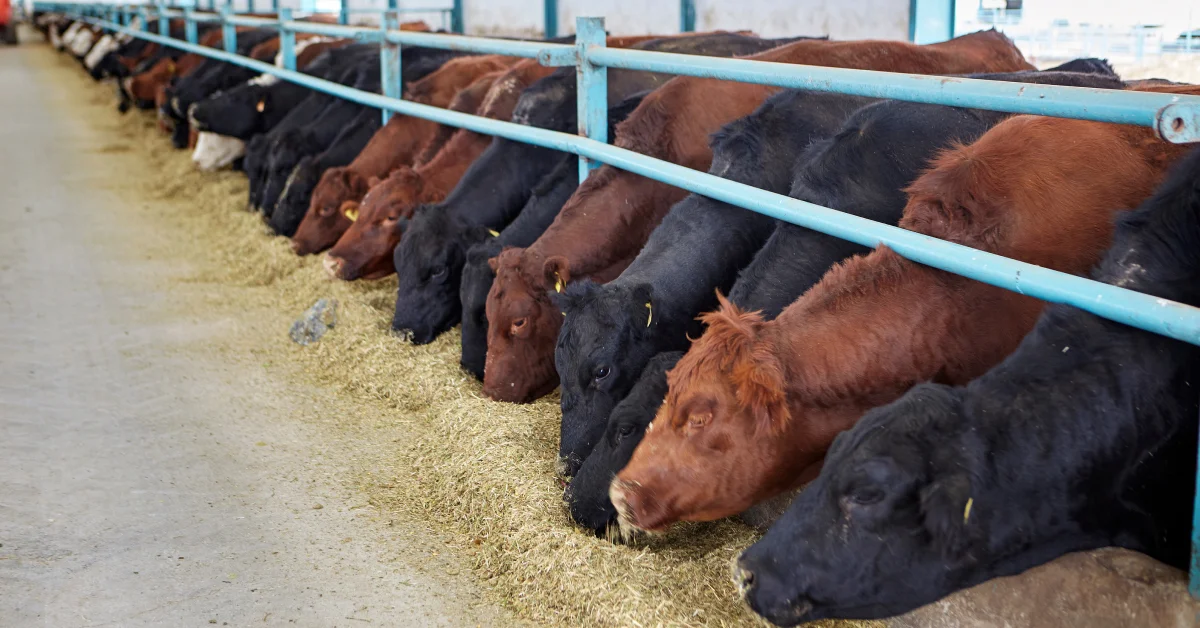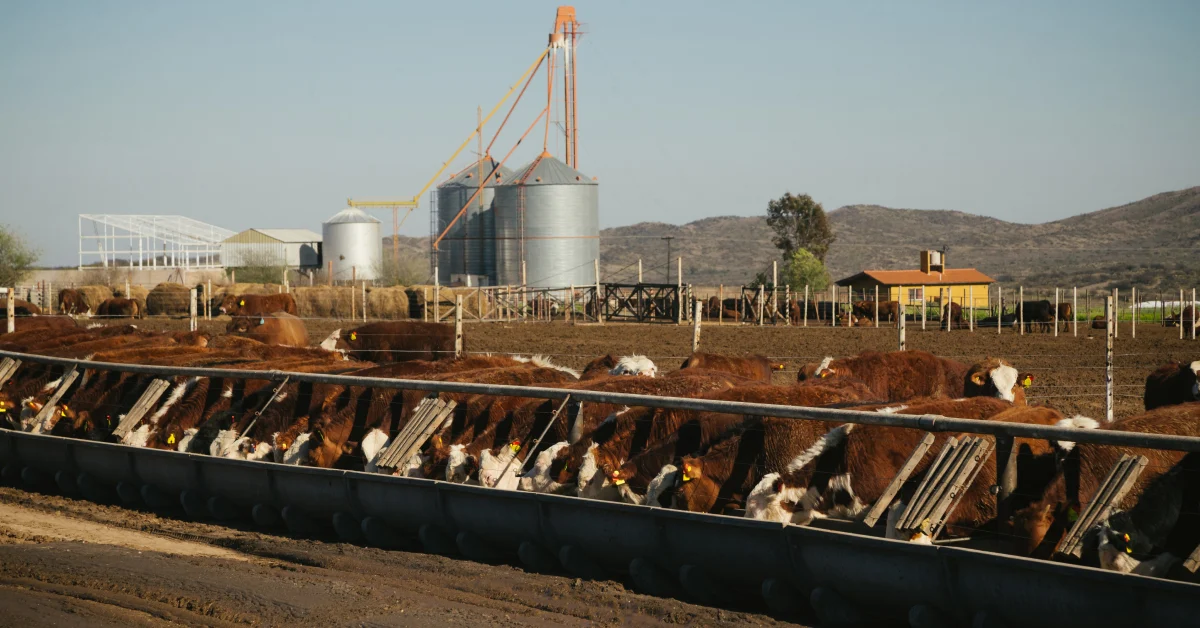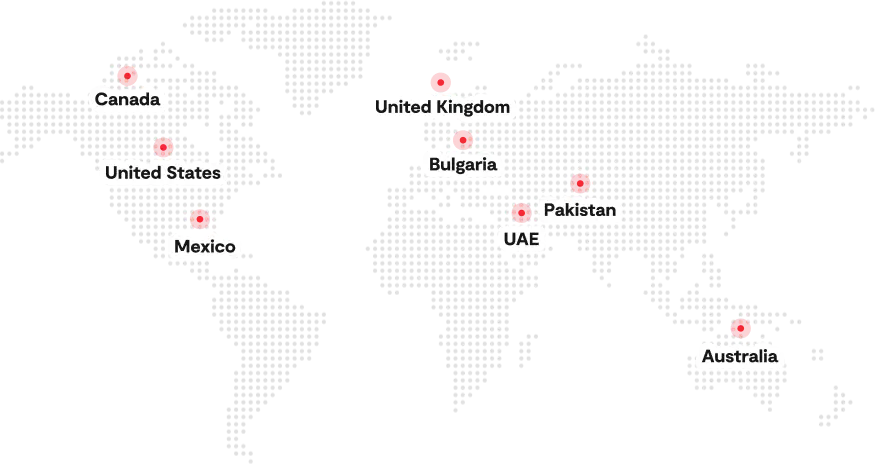By 2024, while the global population is growing and eating intake is trending upward, the seed industry stands at the border of agricultural technology. As farmers’ demands change with time and food production becomes sustainable, seed companies are embracing technology, particularly seed management software, more often than before.
Seed management software is vital because it standardizes the processes of seed production, distribution, and trade.
Such custom developed agriculture software offer everything from inventory and crop planning to regulatory compliance and client-relationship management, allowing managers to improve business operations.
Seed companies must change their operations to make the seed supply chain more efficient, accurate, and productive to cope with the growing demand for food. By acquiring seed management software, enterprises can manage varied inventory, maintain seed quality, and instantly adjust to market trends.
In this blog, we’ll examine the top five reasons why seed companies should invest in seed management software for 2024. So, let’s get started!
The Importance of Seed Management Software
In today’s hectic agriculture, seed management applications are critical tools for seed companies seeking to boost their productivity and enhance their expansion.
Taking advantage of the technology at hand, seed management software is more important than ever for the growth of agribusinesses in terms of productivity, efficiency, and profits.
Seed management software automates many of the intricacies of seed manufacturing, distribution, and sales, providing a single environment for efficiently accomplishing various tasks.
These include inventory management, crop planning, regulatory compliance, and customer relations management. They enable seed companies to run smoothly and keep up in the market.
Seed management software has significant positive aspects, including generating essential information through data analysis. Businesses can determine seed performance, market trends, and customer preferences through data science and analytics tools.
The data-driven method allows decisions with better information bases so seed companies can make their strategies effective, expand their product range, and benefit from new market opportunities. Moreover, seed management solutions provide agribusinesses with customizable features and functions that fit their appropriate needs.
These processes may include complete inventory tracking, batch management, quality control measures, and safety standards management tools. By identifying and solving specific seed company-specific problems, such as seed viability, germination rates, and regulatory compliance requirements, these platforms guarantee improved efficacy and adherence to regulations.
Five Reasons Your Seed Business Needs Seed Management Software in 2024
The rapid pace of the agricultural environment nowadays puts seed businesses under pressure to follow the trend, follow the growing demand for high-quality seeds, high-quality work, efficient and accurate, and comply with standards simultaneously.
Tapping into fierce competition and discovering new openings are two intriguing themes seed enterprises should consider closely. However, they stand a chance when integrating modern technology solutions that meet their demands.
Seed management software is designed to integrate and automate all the processes of a seed production enterprise, including storage, sales operations, and more. Seed annual management software has never been as crucial for farmers to adopt as it will be in 2024.
Therefore, let’s highlight five critical reasons why seed management software is necessary for the seed business in 2024.
1. Efficiency and Cost Savings
Seed management systems that use automation software improve efficiency and save costs by automating processes and decreasing operational staff. The systems below, which have automated tasks, including inventory tracking, order service, and customer management, save precious time and resources.
For instance, seed companies may utilize software solutions to automate stock level tracking across all locations, supporting real-time reordering and minimizing inventory shortages or excess inventory. Additionally, seed management software replaces human effort and physical documents, minimizing mistakes and enhancing data quality.
Seed information systems unify data management processes, guaranteeing consistency and reliability in crop-related information making planning and decision-making easier. Seed management software can be adopted instead of spreadsheets.
This software will enable them to set up, schedule, and monitor tasks and progress in real-time, ultimately leading to time savings and more operational transparency and accountability. The seed management software will also reduce the time and resources required for staff training and expertise.
It is equipped with user-friendly interfaces and standardized processes that shorten training periods. Therefore, training costs are reduced, and time to productivity is accelerated.
2. Increased Productivity
Seed management systems are essential parts of automated processes in seed companies that make them less time-consuming and computerized.
Such systems perform seed management-related tasks such as inventory tracking, order processing, and customer management, which employees otherwise do, freeing their minds for more strategic activities.
Seed management software automates redundant processes, standardizes workflows, decreases employees’ workloads, and allows them to work faster and more efficiently.
You can eliminate countless interruptions and complex processes with digital patient records because employees can prioritize tasks to improve efficiency and productivity.
In short, boosting productivity is one of the primary purposes of seed management software for seed businesses. It allows workers to handle more jobs in less time, improving operations and producing acceptable business results.
3. Improved Collaboration
Seed management systems foster improved collaboration within the business by providing a centralized platform for communication and information sharing. These systems allow team members from different departments to access and update relevant data in real time, enhancing transparency and coordination across the organization.
For example, seed management software enables sales teams to communicate effectively with production and distribution teams regarding inventory levels and customer orders. This ensures everyone is aligned on current priorities and can work together to efficiently meet customer demands.
Additionally, seed management systems often include features such as task assignments, project tracking, and shared calendars, facilitating better teamwork and collaboration.
Team members can easily collaborate on projects, assign tasks, and track progress, leading to more streamlined workflows and improved productivity.
4. Maintain Traceability & Regulation Compliance
The seed sector demands traceability and compliance with stringent regulations regarding variegated quality standards and rules. Traceability means that consumers can track their seeds from production to distribution, allowing for the identification of any problems as quickly as possible.
Seed management systems are devices industries use for exercise and inspection to help them retain traceability and compliance. These data systems allow companies to track every detail about their seed batches, such as the seed origin, milling method, sorting stages, and distribution stories.
Seed data captured by the system can be quickly provided to auditors once they undertake an inspection or regulatory inspection session. This data submission to such sessions promises compliance with regulatory standards and seed certifications.
In addition, seed management systems contain features like barcode scanning and electronic record keeping, which improve traceability and eliminate the risks of mis-entries, such as the lack of accuracy usually found in manual data entry.
5. Improved Accuracy
Seed management systems and seed production techniques are crucial in improving efficiency in the seed production process.
These systems are based on high-tech automation for data entry, with minimal error outputs and maximizing data consistency throughout their lifecycle. Seed management systems are precise because they standardize data input procedures and enforce validation rules.
For example, these systems can influence users to enter specific information in predefined formats, which could eliminate the possibility of data entry errors. Furthermore, built-in validation checks mark any differences or loose ends in the data so they can be addressed earlier.
Moreover, the use of barcode scanning, as well as the RFID technology, enables Seed Management Systems to trace and record seed-related data with practically no errors.
Via barcode scanning or RFID tags on seed cartons, users can instantaneously access important information, like seed type, batch number, and seal-in date, with relatively little tortuous procedure. It helps decrease the risk of mislabeling and thus lowers the errors in data accuracy.
Choosing the Right Seed Management Software
Seed businesses must select the appropriate seed management software to effectively manage their operations and navigate the complexities of seed production, storage, and sales. Unlike generic software solutions, seed-specific software offers tailored features and functionalities designed to address the unique challenges and requirements of the seed industry.
Importance of Choosing a Seed-Specific Solution
Industry-Specific Needs
Seed businesses operate within a highly specialized industry with distinct requirements related to seed genetics, breeding, production, and distribution. Generic software may lack the specific features needed to effectively manage these intricacies. Seed-specific solutions are purpose-built to address seed companies’ unique needs, ensuring optimal performance and efficiency.
Regulatory Compliance
The seed industry is subject to stringent regulations and compliance standards governing seed quality, purity, labeling, and traceability. Seed management software tailored to the sector incorporates compliance features that facilitate adherence to regulatory requirements, helping businesses avoid penalties and ensure legal compliance.
Complex Seed Lifecycle
Seed production involves a complex lifecycle encompassing breeding, field trials, seed processing, inventory management, packaging, and distribution. Seed-specific software streamlines these processes by offering integrated modules and workflows tailored to each stage, from germplasm management to commercialization.
Features of Seed Management Software Tailored to Seed Production, Storage, and Sales Complexities
Germplasm Management
Seed-specific software allows businesses to efficiently manage germplasm collections, including pedigree information, genetic traits, and breeding data. Advanced features like trait tracking and genetic analysis facilitate breeding programs and variety development.
Field Trials and Research
Seed management solutions provide tools for planning, executing, and analyzing field trials to evaluate seed performance, adaptability, and disease resistance. Features such as plot management, trial design, and data analysis support research efforts and decision-making.
Inventory and Warehouse Management
Seed-specific software includes inventory management capabilities tailored to seed handling requirements, such as lot tracking, seed treatment tracking, and inventory optimization. Warehouse management features ensure proper storage conditions and efficient movement of seed stock.
Quality Assurance and Compliance
Seed management systems incorporate quality control features to ensure seed purity, viability, and compliance with industry standards. Barcode labeling, seed testing, and certification management functionalities support quality assurance processes and regulatory compliance.
Sales and Distribution
Seed-specific software includes modules for managing sales orders, contracts, pricing, and distribution channels. Integration with customer relationship management (CRM) systems facilitates customer communications, order tracking, and market analysis.
How Folio3 AgTech Has Helped Businesses with Crop and Seed Management Operations?
Folio3 AgTech has been instrumental in helping numerous agricultural businesses overcome operational challenges by successfully creating custom crop and seed management software to digitize their field operations.
Gro Alliance encountered issues with its existing agricultural management application, including runtime bugs, compatibility constraints, and limited customization capabilities. These obstacles significantly impacted their ability to streamline operations and achieve optimal data accuracy, necessitating a comprehensive solution.
Folio3 AgTech thoroughly analyzed Gro Alliance’s operational pain points and devised a tailored solution to effectively address each challenge. Leveraging our expertise in agricultural technology, we developed a robust software solution equipped with essential functionalities to enhance operational efficiency and scalability.
The custom crop and seed management software offered by Folio3 AgTech provided Gro Alliance with a range of solutions, including:
- Our solution facilitated seamless inbred and hybrid management, enabling Gro Alliance to create, track, and manage inbred and hybrid activities efficiently.
- Additionally, our field management capabilities empowered Gro Alliance to monitor and optimize field operations in real time, enhancing productivity and performance.
- With our crop lifecycle management module, Gro Alliance gained visibility into the entire crop lifecycle, from planting to harvesting, allowing for better planning and resource allocation.
- Moreover, our advanced data analytics tools gave Gro Alliance actionable insights into their field activities, enabling data-driven decision-making and performance optimization.
Folio3 AgTech’s crop and seed management solution transformed Gro Alliance’s operations, driving their agricultural endeavors’ efficiency, productivity, and profitability. Our commitment to innovation and customer satisfaction continues to make us a trusted partner for businesses seeking to leverage technology for success in the farming sector.
Conclusion
This blog post emphasizes the imperative role played by seed management software by seed companies in 2024. We’ve discussed how seed management software can significantly improve productivity, efficiency, collaboration, accuracy, and regulatory compliance in seed companies using the following Gro Alliance seed management software solution designed specifically by Folio3 Agtech. Companies can do this by investing in seed management software to help them better understand their operations, decrease costs, calculate APY (Annual Percentage Yield) for more accurate financial forecasting, increase data accuracy, and ultimately profit.
Companies can do this by investing in seed management software to help them better understand their operations, decrease costs, increase data accuracy, and ultimately profit.
Folio3 Agtech’s solution for Seed Alliance exemplifies the potential of customized software management platforms to tackle the pitfalls for seed businesses and ultimately result in transformations.
Consequently, we recommend that seed businesses purchase seed management software that best fits their type. Through technology adoption and advancement, seed businesses can be at the forefront, efficiently run the processes, and, as a result, promote sustained growth of agricultural industries in 2024.
FAQs
What are the Factors that Seed Businesses Should Consider When Selecting Seed Management Software?
In terms of seed management software, businesses should consider scalability, customization, integration, ease of use, security, customer support, and value for money, among other factors.
How Does Seed Management Software Help the Seed Industry Comply with the Regulations?
Seed administration software ensures that seed businesses always comply with regulatory requirements. It allows companies to track seed batches, observe quality, store production details, and effortlessly produce compliance reports.
How Can Seed Management Software Sharpen Cooperation in the Seed Industry?
Seed management software ensures a smooth flow of information among different seed industry divisions and teams.





